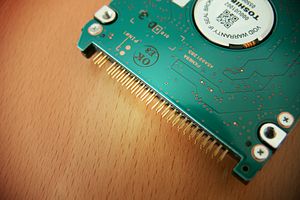Toshiba is racing against the clock to conclude a deal that will sell its prized memory chip unit. As the troubled electronics and machinery giant requested a fifth extension for announcing its financial results, it faces the possibility of being delisted from the Tokyo Stock Exchange. Already, Toshiba’s stock has been demoted from the First Section to the Second Section – a decision that will take effect on August 1.
The approximately 2 trillion yen ($18 billion) sale is necessary for Toshiba to recover from the losses of Westinghouse Electric Co., its U.S. nuclear power unit, which filed for bankruptcy in March. Toshiba is the world’s second largest producer of NAND flash memory chips, but has been having difficulty selling off Toshiba Memory Corp. due to ongoing disputes with Western Digital Corp. Western Digital, Toshiba’s partner in the joint chip venture, has gone so far as to file an injunction to block the sale.
Toshiba’s preferred bidder for the sale of Toshiba Memory is a Japan-U.S.-South Korea consortium, made up of the Innovation Network Corporation of Japan (INCJ), the Development Bank of Japan, Bain Capital, SK Hynix, and others. However, the deal is at an impasse because INCJ, the core entity of the consortium, has set the resolution of the dispute with Western Digital as a precondition for participation.
To get its partner onboard, Toshiba has asked Western Digital to join the consortium. If Western Digital had accepted the offer, it would have changed the framework. Toshiba would insist on keeping Japanese participation in capital contribution at more than 50 percent of the total. Toshiba has a strong preference for keeping the unit in Japanese hands to allow the company to maintain its corporate value and work force in Japan.
Another important consideration that favors the Japan-dominated consortium is concern about sensitive technology “leaking” if the unit is sold to another bidder. Japan’s Ministry of Economy, Trade, and Industry (METI) has been orchestrating this bid, wanting to keep the chip unit under domestic control.
Interestingly, one of Western Digital’s complaints about the sale is SK Hynix’s involvement. Western Digital has said that SK Hynix’s participation increased the likelihood of technology leaking to the rival chipmaker. Toshiba has previously sued SK Hynix over suspected theft of data related to flash memory technology; SK Hynix settled the claim for $278 million in December 2014.
However, Toshiba missed an important self-imposed deadline on June 28 when it came to the general shareholders’ meeting empty-handed.
If everything can be completed before end of March next year, the sale will help Toshiba avoid being delisted from the Tokyo Stock Exchange. However, as the conflict with Western Digital worsens, with Toshiba suing its partner for about $1 billion over its attempts to block the sale of the chip unit and Western Digital’s new offer for the unit, the chances of resolution are rapidly slimming.
People close to the sale have told The New York Times that Western Digital’s offer, made in tandem with Kohlber Kravis Roberts, is not as much as the consortium Toshiba favors. Toshiba could take the lower, safer offer, or go with the better offer – which carries with it the risk of a long legal battle.

































